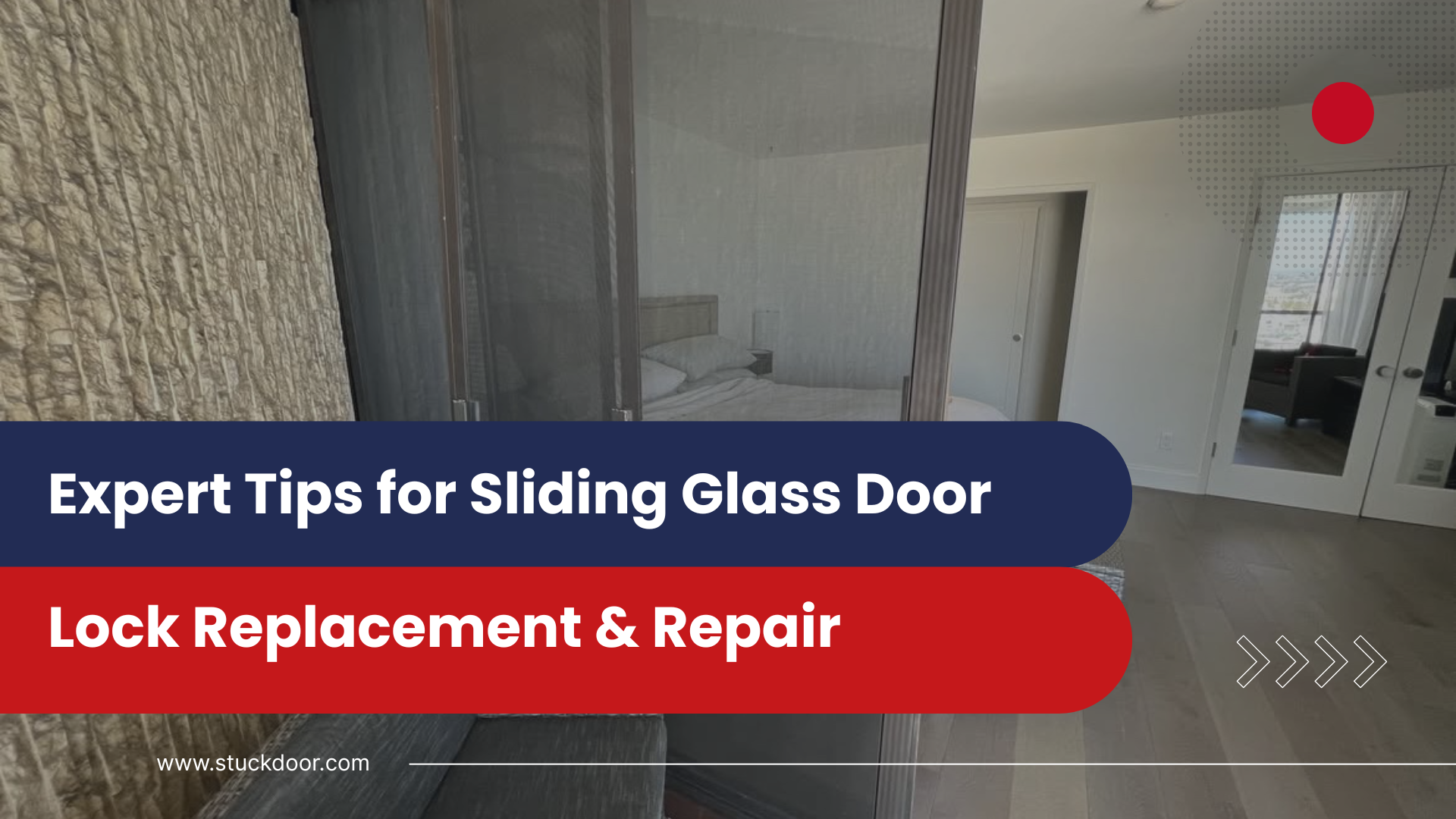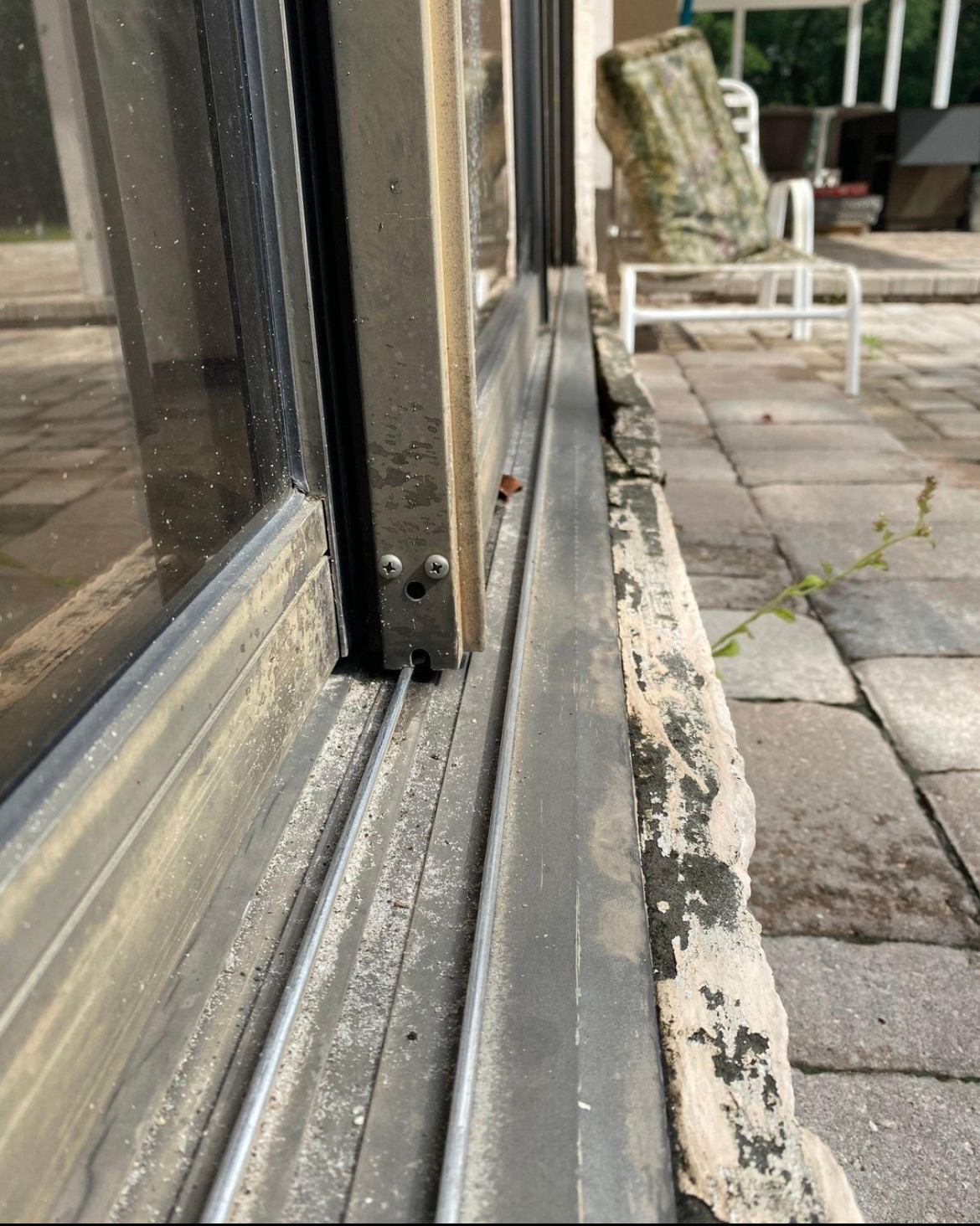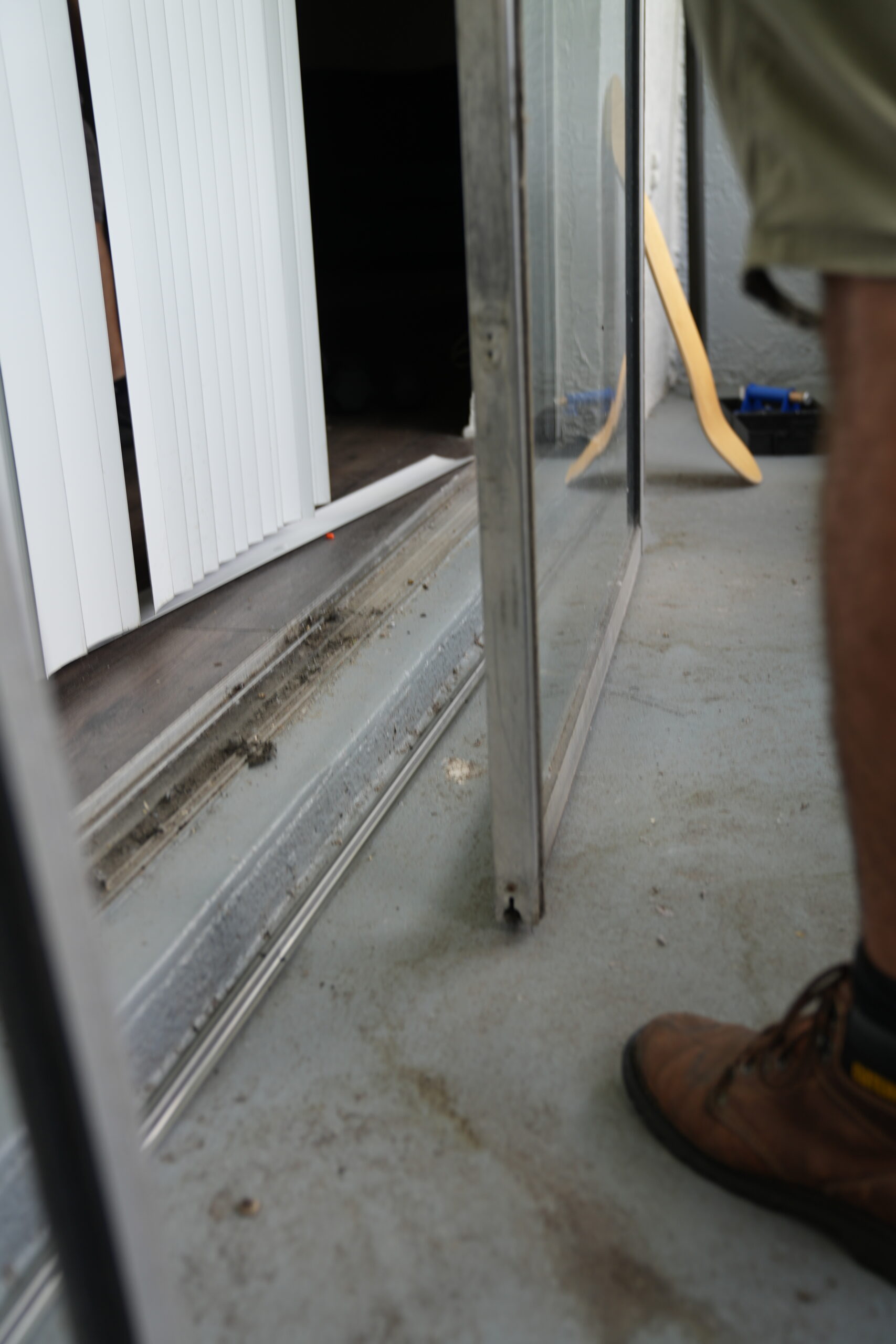
Installing or repairing a sliding glass door lock can restore security and smooth operation for your home or commercial property in Central Florida. This guide explains the most common lock problems, outlines the professional repair process, compares repair options by lock type, details transparent pricing, highlights why Stuckdoor.com should be your go-to local expert, and empowers you with simple DIY troubleshooting steps. Whether you need alignment correction, mechanism replacement, security upgrades, or a free consultation, you’ll find the answers and solutions to keep your sliding glass door secure and functional.

Sliding glass door lock issues often stem from mechanical wear, environmental factors, or frame misalignment causing security risks and operational frustration. Recognizing these failures early prevents further damage and ensures reliable locking performance. Below are the primary malfunctions Central Florida homeowners and property managers encounter.
Misalignment occurs when the door panel shifts downward or sideways, preventing the lock’s latch from engaging the strike plate. This gap stops the deadbolt or latch from entering its slot, causing the door to slide but never lock. For example, a settling foundation can tilt the door frame, making the latch miss the strike plate by millimeters and compromising security.
Misalignment in sliding glass doors can prevent the lock’s latch from engaging with the strike plate, compromising security. This issue often arises from settling foundations or other structural shifts, causing the door panel to shift and the lock to fail.
Building Research Information (BRI), “Door and Window Security” (2022)
This research supports the article’s explanation of how misalignment affects the functionality of sliding glass door locks.
Sliding door locks jam when dirt, rust, and debris accumulate within the internal latch assembly or on the track, blocking smooth movement. Coastal humidity accelerates corrosion of metal parts, while tiny pebbles on the track grind against the mechanism. Over time, these contaminants seize the latch, rendering the lock immobile until thoroughly cleaned and lubricated.
Sliding door locks can get stuck or jammed due to the accumulation of dirt, rust, and debris within the internal latch assembly or on the track. Coastal humidity accelerates corrosion of metal parts, while tiny pebbles on the track grind against the mechanism, leading to lock failure.
National Association of Home Builders (NAHB), “Home Maintenance Guide” (2023)
This source provides further insight into the environmental factors that contribute to sliding door lock problems, as discussed in the article.
A worn or broken lock mechanism exposes properties to forced entry by reducing holding force and latch integrity. Common internal failures include stripped gears in key cylinders, fractured plastic cams, and bent latch hooks. Such damage prevents complete engagement of the lock and diminishes the door’s resistance to prying, creating a significant security vulnerability.
Repeated insertion, rotation under load, and exposure to moisture wear down key teeth and cylinder pins, causing keys to slip or jam. Metal-on-metal friction gradually rounds off sharp edges on both the key and the lock components. A key that spins freely in the cylinder indicates worn tumblers requiring cylinder replacement to restore precise engagement.
If basic cleaning and lubrication fail to restore smooth locking function, or if the mechanism exhibits cracks, stripped gears, or persistent misalignment, professional intervention is necessary. Complex internal repairs, precise realignment, and security upgrades ensure reliable performance and prevent costly door or glass damage that DIY methods cannot fully address.
Professional sliding glass door lock repair combines systematic diagnosis, targeted adjustments, component restoration, and optional security enhancements to deliver lasting reliability and safety. The process ensures each element (from latch alignment to cylinder function) is optimized for smooth operation and protection.
A complete diagnosis inspects door alignment, track condition, latch engagement, cylinder operation, and key performance.
This systematic assessment identifies misalignment, worn parts, or environmental factors requiring correction before repair proceeds.
Precision adjustment realigns the door’s rollers and track height to ensure the latch lines up perfectly with the strike plate. Technicians typically:
Accurate roller adjustment restores both smooth sliding motion and consistent lock engagement.
Professional services address worn or broken internal components with the following actions:
| Component | Repair Action | Benefit |
|---|---|---|
| Cylinder Pins | Replace pin stack | Restores key precision |
| Latch Hook | Swap to new assembly | Ensures full engagement |
| Cam Gear | Install hardened gear | Prevents future stripping |
| Strike Plate | Realign or replace | Guarantees secure locking fit |
Technicians remove the existing handle-latch unit, align the new assembly within the door frame mortise, secure mounting screws, and test the handle’s throw to confirm smooth latch travel. Precise positioning prevents binding and ensures effortless operation.

Upgrading a sliding door lock can significantly deter break-ins and reinforce safety:
| Upgrade Type | Feature | Security Benefit |
|---|---|---|
| Keyed Deadbolt | High-security cylinder | Increases resistance to cylinder drilling |
| Double Bolt | Dual-point locking | Prevents door lift and forced entry |
| Security Bar | Track-mounted brace | Blocks door movement from inside |
| Smart Lock | Remote access & alerts | Enables real-time intrusion monitoring |
Sliding glass doors accommodate several lock types, each with unique mechanisms and repair methods. Understanding their designs ensures correct restoration or upgrade.
Mortise locks fit into a cavity within the door edge and use an internal latch-bolt system. Repair involves extracting the lock body, assessing the bolt assembly, replacing broken springs or latch hooks, and re-seating the mechanism to factory tolerances.
Keyed locks feature a cylinder actuating an internal cam that retracts the latch. Replacement requires matching the new cylinder’s cam orientation, installing it into the lock housing, and re-calibrating the latch throw to align with the strike plate.
Smart locks combine electronic locks and connectivity modules. Repair often entails firmware updates, battery pack replacement, sensor recalibration, or swapping faulty electronic actuators. Technicians ensure the device remains weatherproof and synced to control apps.
Bolt locks add a secondary steel rod that engages into the frame, and security bars fit into the track to physically block sliding motion. Both devices reinforce the primary lock and provide an extra deterrent against forced entry.
Repair costs vary by service complexity, parts availability, and labor rates, but transparent pricing helps you compare options and avoid surprises. Understanding cost components guides property managers and homeowners in budgeting for reliable security.
Key price drivers include:
Material availability and technician expertise also affect total repair estimates.
Below is a general overview of repair costs in Central Florida:
| Repair Type | Cost Range | Average Benefit |
|---|---|---|
| Cylinder Pin or Key Mechanism | $150-$300 | Restores smooth key operation |
| Latch/Bolt Assembly Replacement | $200-$400 | Ensures secure full latch engagement |
| Roller & Alignment Adjustment | $120-$250 | Improves sliding action and lock fit |
| Complete Lock Unit Swap | $250-$500 | Replaces entire mechanism for durability |
These figures exclude emergency service surcharges and optional upgrade fees.
When repair expenses approach 50 percent of a new door’s price, replacement may be more cost-effective. However, repairing preserves existing glass and frame, reduces waste, and extends the life of intact door components.
Stuckdoor.com offers free on-site evaluations and flat-rate quotes without hidden fees. This ensures you know the total investment before authorizing work, aligning with our customer-centric commitment to transparent pricing.
Selecting a reputable local provider guarantees prompt response times, expert workmanship, and tailored solutions for our region’s climate and door styles.
Our technicians understand humidity-related corrosion, coastal weather impacts, and common door brands used in Orlando, St. Petersburg, and surrounding counties. This knowledge expedites diagnosis and prevents repeat service calls.
Every repair specialist is factory-trained in major sliding door lock systems, holds locksmith licensing for Florida, and completes ongoing safety and security workshops. This professional background underpins reliable, code-compliant installations.
We provide itemized estimates in writing, honor flat-rate labor, and maintain open communication throughout the repair process. Customer feedback drives continual process improvements and high satisfaction scores.
In addition to standard lock restoration, Stuckdoor.com installs secondary locking bars, keyed deadbolts, and smart access controls, each designed to integrate with your door’s frame and boost overall protection.
Basic maintenance can solve minor lock malfunctions, but always proceed cautiously and know when to call a professional for complex problems.
Follow these DIY steps to free a jammed latch:
Completing these actions often restores smooth locking function.
To correct misalignment:
Precision alignment realigns both sliding motion and lock fit.
Avoid self-repair if you detect:
These signs indicate internal damage requiring professional tools and expertise.
For diagnosis beyond simple cleaning, contact Stuckdoor.com at (407) 555-LOCK or visit our website to schedule a free consultation. Our rapid response teams serve Orlando, Tampa, and the Space Coast with same-day service options.
Below are concise expert answers to common user queries about sliding glass door lock maintenance, replacement, and security upgrades.
A non-locking door usually suffers from misalignment, debris buildup, or worn latch parts. Cleaning the track, lubricating the mechanism, realigning the door, or replacing a damaged latch or cylinder restores reliable locking.
While cylinder swaps and basic adjustments suit experienced DIYers, installing new lock bodies, mortise mechanisms, or integrating security bars is best handled by trained technicians to ensure precise fit and maintained weather seals.
Indicators include loose or spinning keys, cracked or chipped lock housing, repeated binding, and inability to achieve full latch engagement. These symptoms point to worn internal components or misaligned assemblies beyond simple repair.
Most lock inspections and minor repairs complete within one to two hours. Full mechanism replacements or upgraded installations may require half a day, depending on complexity and component availability.
Adding deadbolts, double-bolt systems, and track-mounted security bars increases resistance to forced entry by distributing locking points and physically blocking door movement, enhancing peace of mind for homeowners and property managers.
Sliding glass door lock repair combines precise alignment, component restoration, and strategic security enhancements to keep your property safe and functional. By addressing the root causes (misalignment, wear, debris, or corrosion) professionals deliver lasting solutions tailored to Central Florida conditions.
For hassle-free, transparent service backed by certified technicians, Stuck Door is your trusted local partner. Schedule your free consultation today to safeguard your sliding glass door with expert repairs and upgrades.
______________
Hey, I’m Luis, the owner of Stuck Door. Before this, I worked in law enforcement, where attention to detail and doing things right the first time were non-negotiable. That mindset carries over into everything we do. When it comes to sliding glass door repairs, glass replacement, or screen installs from us, you can expect straightforward service, quality work, and a crew that shows up and gets the job done right. You’re in good hands here.
Stuck Door helps fix and install sliding doors in Winter Garden, Clermont, Windermere, and across Central Florida. Our friendly expert technicians have years of experience making sure homes and businesses have reliable doors that work perfectly.
Windermere • Doctor Phillips • Lake Nona • Winter Garden • Clermont • Minneola • Groveland • Ocoee • Apopka • Winter Park • Maitland • Kissimmee • Horizon West • Altamonte Springs
Sliding glass door experts, built for Florida homes—call us today.